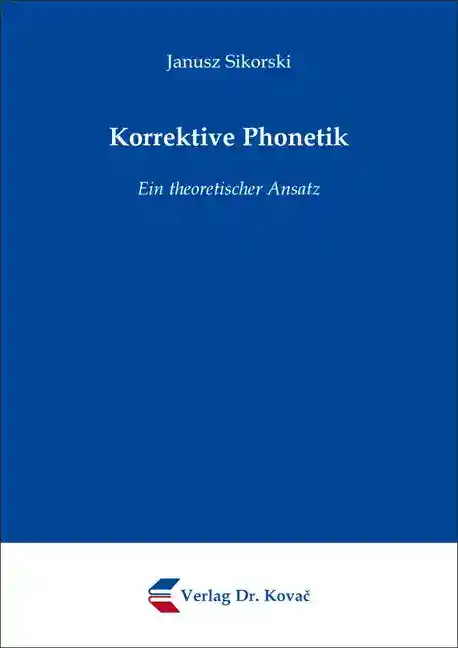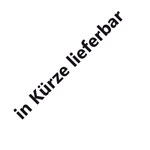Janusz SikorskiKorrektive Phonetik
Ein theoretischer Ansatz
PHILOLOGIA – Sprachwissenschaftliche Forschungsergebnisse, volume 178
Hamburg 2013, 630 pages
ISBN 978-3-8300-7279-9 (print) |ISBN 978-3-339-07279-5 (eBook)
Rezension
[...] Insgesamt bietet das Buch einen interessanten und vollständigen Überblick über die verschiedenen Aspekte, die für eine praktische Ausspracheschulung relevant sind. [...] ist der Text für all diejenigen, die sich thematisch mit der Ausspracheschulung auseinandersetzen möchten, ein empfehlenswerter Beitrag.
About this book deutschenglish
The work presented here is an essential contribution to the theoretical debate on teaching and learning of a foreign language pronunciation. Drawing on ample literature existing on the subject, the author states his views on the established theoretical ideas, takes a close look at common opinions, underlines the multidimensional nature of norm violations, while indicating the considerable role of extra-lingual factors and their didactic implications. Informative and intellectually inspiring are especially his critical remarks on interlingual interference as well as his innovative reflections on gradual and incremental increase of the level of difficulty. The author's theoretical stance is reflected in his fresh treatment of the term correction in practical phonetics and in his awareness of the resistance of the organs of speech to the articulation tasks as the main cause of difficulties. The role of cognitive and psychological factors is not denied. Questions, however, are raised with regard to widely held views in specialist literature concerning: (a) the basis of perception, also defined as phonological character of hearing, auditory matrix, native habits of auditory perception and (b) the basis of articulation — a vague term with no cognitive value, which is neither useful for clear description nor as a means of creating didactic instructions in the phonetic course. The willingness to rationalize the didactics of foreign language pronunciation by setting a so called phonetic minimum for the syllabus is brought up as well for critical scrutiny. The development of digital media created a unique opportunity for a revolutionary methodical progress in education. The author proposes cautious optimism in this area, arguing that the specific character of the phenomenon of speech offers no grounds for unrealistic expectations that any motivational measures can create a true learner autonomy, or that the use of any electronic equipment can be so successful as to eliminate the teacher from the phonetic training. An accurate diagnosis and a well-directed instruction in practical phonetics are not existent within the domain of digital application devices. The presentation of views which the author embraces, as well as those with which he takes issue, is supported by numerous quotations. Thus the book offers a compact review of popular theoretical concepts and can be used as a textbook. An extensive subject index also allows the publication to be used as a reference material.Keywords
Angewandte LinguistikAussprachelehreAusspracheschulungDeutsch als FremdspracheDigitale DidaktikFremdsprachenerwerbFremdsprachenvermittlungInterlinguale InterferenzKorrektive PhonetikPhonetikSchwierigkeitsprogressionSprachpsychologieSuprasegmentalieIhr Werk im Verlag Dr. Kovač

Möchten Sie Ihre wissenschaftliche Arbeit publizieren? Erfahren Sie mehr über unsere günstigen Konditionen und unseren Service für Autorinnen und Autoren.
Weiteres Buch des Autors
Systemzwang und Spielraum im interlingualen Transfer
Aufsätze zur angewandten Linguistik
Hamburg 2024, ISBN 978-3-339-13990-0 (Print) |ISBN 978-3-339-13991-7 (eBook)


